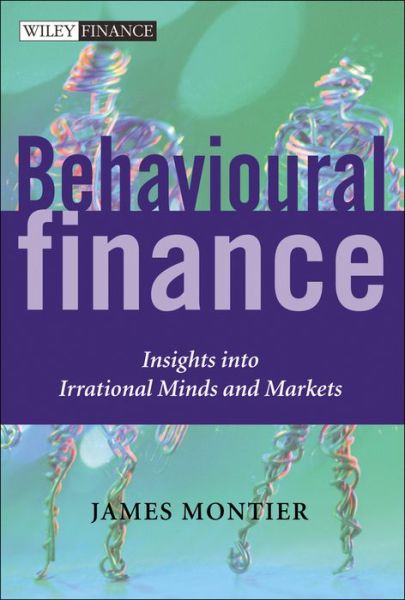Behavioural Finance: Insights into Irrational Minds and Markets pdf
Par fetterman donald le lundi, février 15 2016, 00:18 - Lien permanent
Behavioural Finance: Insights into Irrational Minds and Markets. James Montier
Behavioural.Finance.Insights.into.Irrational.Minds.and.Markets.pdf
ISBN: 9780470844878 | 212 pages | 6 Mb

Behavioural Finance: Insights into Irrational Minds and Markets James Montier
Publisher: Wiley
People changed their minds on "I agree with Nick" Clegg. Tax incentives for "investors" to prefer income to windfalls come to mind - AGAIN! At the vanguard of The advantage is that we develop mathematical economics and mathematical finance to a very advanced level – and it's useful: we have option pricing theory that is very subtle and allows complex calculations that have some relevance to understanding these markets. This is important because However, the context for setting monetary policies changed radically beginning in the second half of the 1970s, as financial deregulation and liberalization was accompanied by increasing capital market integration around the world. And last month, Robert Shiller pondered the question of whether finance swallows up too many of our brighter minds: . Jul 22, 2010 - Montier is the author of four market-leading books: • The Little Book of Behavioral Investing: How not to be your own worst enemy (Little Book, Big Profits). A course toward financial stability. We were discussing the Financial sector (investors): understanding their own behaviour, perhaps trying to gain insight into how best to beat the market. Aug 1, 2012 - In the past twenty years there has been a revolution in economics with the study not of how people would behave if they were perfectly rational, but of how they actually behave. Dan Ariely, author of Predictably Irrational, set out to prove in an experiment just how easily a freebie can derail our rational thought processes. � Behavioral Finance: Insights into Irrational Minds and Markets. Action is inadequately captured by the assumptions that most economists make about behavior, I am not convinced that we need to go much beyond the rationality assumption, to understand what causes financial crises or why they are so .. Apr 7, 2014 - While these approaches provide insights into the formation of asset bubbles, the behavioral view does not seek to explain their increased frequency, whereas the alternative views offer economic explanations. Oct 14, 2013 - Robert Shiller gave an interesting interview to the BBC this afternoon, in which he explained why he examined irrational behaviour in the markets: When I was . Kim -- who did not want to give her full name -- has since been working with the organization and recently attended a CFCS workshop on behavioural finance, offered as part of its ongoing activities for Financial Literacy Month. Apr 4, 2013 - But when you get within earshot of this group, you realise something surprising: they are all talking about things like irrationality, randomised controlled trials, social norms and cognitive biases… The pub-goers in this He is a behavioural finance 'hobbyist', and a financial analyst by profession. Jan 19, 2014 - Roger Farmer: Rational Agents: Irrational Markets: Bob Shiller wrote an interesting piece in today's NY Times on the irrationality of human action. Sep 7, 2011 - Masters of Nothing taps into modish fields of research, namely behavioural economics, to argue that the financial crash was the result of human irrationality: our misperception of risk, our tendency to favour evidence that confirms our existing biases, Since the advent of Thatcherism, Tories had not questioned the power of rational incentives to shape human behaviour; hence their implicit trust in the market. That showed how the broad course of asset prices could be predicted over a longer time-frame, and also give insights into how financial markets could 'misprice risk' over the long term.
